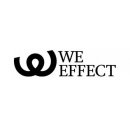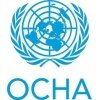Programme Mid-term Evaluation
Terms of Reference (TOR)
Programme Mid-term Evaluation of the Environmental and Climate Justice Programme (ECJP)
- Background/Introduction
We Effect, is a Swedish Non-governmental, non-profit, non-religious and civil society developmental organisation established in 1958 as a non-political organisation, operating in Palestine since 1998. We Effect aims to strengthen local and democratic civil society organizations so that their members can improve their living conditions, enforce accountability of duty-bearers, defend their rights and contribute to a more just world
The Environmental and Climate Justice Programme (ECJP) in Palestine is a partnership between We Effect as contractual partner to Sida and the Palestinian Agricultural Institutions Coalition (PAIC) established in 2018. The PAIC is a coalition of six environment, climate and agricultural non-governmental organisations in Palestine (Agricultural Development Association (PARC), Union of Agricultural Work Committees (UAWC), Palestinian Hydrology Group (PHG), Land Research Centre (LRC), MA’AN Development Centre, and the Applied Research Institute – Jerusalem (ARIJ), where ARIJ has a special role in the programme as Technical Lead organisation. In addition, one technical partner organisation contributes to the programme especially in terms of advocacy, namely the Palestinian Environmental NGOs Network (PENGON). The PAIC organisations have decades of experiences in the Palestinian, regional, and international context in the field of community development, natural resources management, agriculture, environment, water, human capacity building, good governance and accountability as well as risk and crisis management. The Environmental and Climate Justice Programme is a 36-month programme with the timeframe 2021-2023, which is implemented in the most climate vulnerable rural communities in Palestine (Gaza, West Bank specifically Area C, Hebron District, East Jerusalem and Jordan Valley). The overarching goal of the programme is “to contribute to improving environmental and climate justice in Palestine” and the specific programme objective is “By 2024, civil society organisations and right-holders have the capability to address and challenge structural barriers to environmental and climate justice in Palestine.”
Programme Goal and Objective
- The overarching goal of the programme is “to contribute to improving environmental and climate justice in Palestine”.
- The programme objective is that “by 2024, civil society organisations and right holders have the capacity to address and challenge structural barriers to environment and climate justice in Palestine”.
Programme Geographical Areas
The consortium (We Effect and PAIC) targets five diversified geographic areas in ensuring wide outreach among rural communities in Palestine (Gaza, West Bank including Area C, Hebron District, East Jerusalem and Jordan Valley). These five geographic clusters have been analysed through the climate vulnerability mapping study during the inception phase, to select the most vulnerable areas, sectors, social groups, local grassroot organisations, communities and targeted groups for the programme. Assessing vulnerability to climate change is important for defining the risks posed by climate change and provides information for identifying measures to adapt to climate change impacts.
Objectives of the Assignment:
The evaluation is expected to provide information to We Effect and its implementing and collaborating partner organisations on results achieved to date (January 2021 until October 2022) and the potential of the Programme to achieve planned results (until December 2023). In addition, the evaluation should assess the management processes in the Programme in relation to achievement of goals. More specifically the evaluation should inform the programme partners on;
- the overall direction of the programme and its progress thus far.
- lessons learned (examples of promising practices as well as aspects of the programme which need improvement).
- functioning of programme management and how the programme is rigged to optimize collaboration and support ownership within the coalition and as well as on the grass root level. Provide recommendations on how the partnership modality can be strengthened.
- We Effect’s added value in supporting partners’ organizational development to work rights based and with a gender lens.
- the adjustments needed for the programme to accelerate its implementation and achieve its objectives during the final year of the programme and in an eventual second phase.
- the potential to upscale the Programme activities over a longer period of time going beyond the programme period in 2023.
Duration and Timing:
The assignment is to be carried out during the period 20th of October to 15th of December 2022. The total number of days for the entire assignment will not exceed 30 working days during the entire contracted period.
Qualificatiosn and Requirements:
Key qualifications and competencies of the Consultant include:
- At least Master's degree or equivalent post-graduate degree in a field of relevance for the assignment (e.g., agroeconomics, business, social sciences, economics, environment etc.).
- At least 15 years of experience as an external evaluator of programmes/projects with rights- based-approaches to organizational change and sustainable rural development.
- Experience and knowledge of environmental justice and climate change development programmes.
- Experience in evaluating complex programmes implemented by a Consortium of organisations.
- Experience in in-depth interviews; focus group discussion and participatory information collection techniques.
- Oral and written fluency in English.
- Ability and willingness to undertake the assignment with tight deadlines.
Application Procedures:
Submitted Applications should include the following:
- Cover letter describing how you would best match the tasks listed and the requirements and skills.
- CV of the consultant or the team of consultants who will be performing the assignment.
- Diploma for completed master’s degree or equivalent post-graduate degree in a field of relevance for the assignment.
- Reference table of the legal entity’s/consultant’s experience by listing performed projects/assignments in relevant areas stated in key qualifications that will include information on:
- brief description of the project/assignment (no more than 100 words).
- value of the contract in ILS.
- donor/contracting party.
- year of realization.
- sector and approaches used (e.g., environment/climate, gender-equality; human rights based-approach, top-down, bottom-up etc.) and
- links to projects/activities reports.
- Financial offer for an all-inclusive daily fee expressed in ILS including all applicable local taxes.
- Declaration of relationships.
- Submission deadline: Documents indicating “Mid-term Evaluation - Environmental and Climate Justice Programme- (ECJP)” should be submitted no later than 5th of October 2022 to [email protected] .
The full detailed ToR for the assignmnet is attached .



















